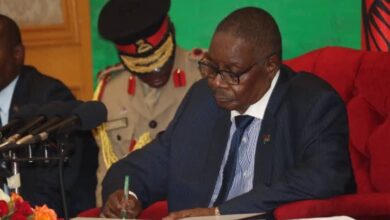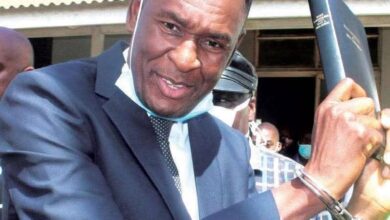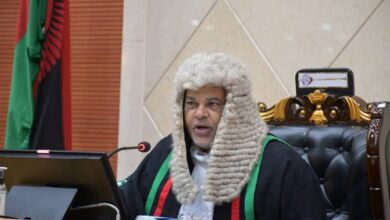Columns
To break or not to break the law? A conflict among government authorities in Malawi

By Burnett Munthali
A new conflict has emerged within Malawi’s government, raising a fundamental question: To break or not to break the law? This contentious issue has pitted various government authorities against each other, creating a complex and divisive debate that threatens to undermine the credibility of the country’s governance structures. At the heart of this controversy are differing interpretations of legal frameworks and the balance between enforcing the law and meeting political or economic demands.
The conflict began when certain actions taken by government officials, aimed at addressing pressing national challenges, seemingly came into conflict with existing laws. These actions have prompted legal experts, civil society organizations, and even senior government figures to question whether the actions were justified or whether they represented unlawful behavior.

One prominent example is the government’s approach to addressing economic challenges through unorthodox measures that some argue bypass or break existing laws. These measures, which were touted as necessary to boost economic recovery, have been met with resistance from various quarters, including legal experts who believe they could set a dangerous precedent.
For example, a decision to bypass certain legal processes to expedite infrastructure projects has drawn criticism from those who view such actions as undermining the rule of law. On the other hand, government officials argue that in times of crisis, certain measures may need to be taken to protect the country’s economic interests, even if they do not strictly adhere to legal procedures.
The legal battle over these actions has created a divided government. On one side, there are those advocating for the importance of following the rule of law to maintain order, accountability, and the integrity of democratic governance. These individuals argue that breaking the law, even for a good cause, is a slippery slope that could lead to widespread corruption and abuse of power. They emphasize that any move to sidestep legal requirements can erode public trust in the government and jeopardize democratic principles.
On the other side, some government officials believe that in times of urgent national need, laws must be flexible to allow for necessary interventions. These officials argue that rigid adherence to legal frameworks, especially in crisis situations, may hinder progress and prevent the government from effectively addressing issues such as poverty, unemployment, and infrastructure deficits.
This ongoing debate has created a tense atmosphere within the government, with divisions emerging even between ministers, lawmakers, and key state agencies. While some government departments continue to push for swift, law-defying action, others are calling for a more cautious approach that prioritizes legal compliance over expediency.
The dilemma is compounded by the fact that public opinion remains divided. Many Malawians express frustration over the slow pace of economic development and the inefficiency of state institutions. They argue that the government should be willing to take bold action, even if it means temporarily breaking certain rules to speed up development. However, others warn that such actions could lead to long-term consequences that may undermine the very institutions that are supposed to protect citizens’ rights and freedoms.
As the debate continues, the role of the judiciary has come under scrutiny. Courts may soon be tasked with resolving the conflict, determining whether certain actions taken by the government are in violation of the law, or whether they can be justified based on national interest. The outcome of these legal battles will likely have a profound impact on the relationship between the branches of government and the public’s perception of the rule of law in Malawi.
In the meantime, the question remains: To break or not to break the law? This fundamental dilemma is testing the resolve of Malawi’s leaders and challenging the nation’s commitment to upholding the principles of justice, fairness, and accountability. The resolution of this issue will not only affect the immediate political landscape but could shape the future of governance in the country for years to come.






